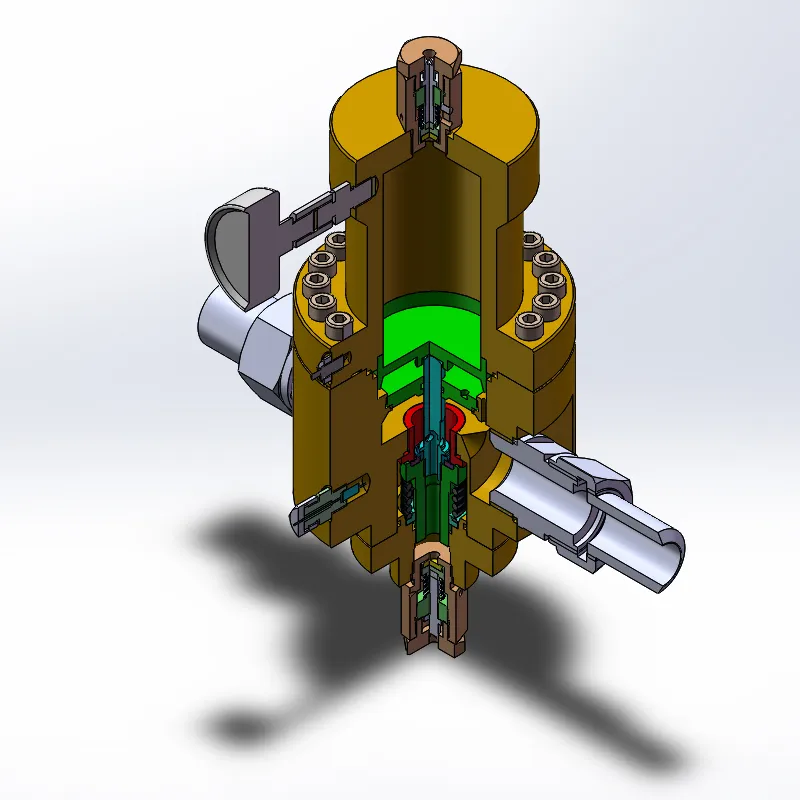
Oct . 11, 2024 01:43
Back to list
Understanding the Functionality and Applications of Cyclone Separators in Various Industries
Understanding Cyclone Separators Principles, Applications, and Benefits
Cyclone separators, also known as cyclones, are mechanical devices that utilize centrifugal force to separate particles from a gas or liquid stream. This method has become one of the most widely used techniques in various industrial sectors due to its effectiveness, simplicity, and cost efficiency. In this article, we will explore the principles of cyclone separators, their applications across different industries, and the benefits they offer.
Principles of Operation
The cyclone separator operates on the principle of centrifugal force. When a mixture of gas and particulates enters the cyclone, it is directed into a cylindrical or conical chamber at an angle. This tangential entry creates a spinning motion within the chamber, causing the heavier particles to be subjected to a centrifugal force that pushes them toward the walls of the separator.
As these particles collide with the inner surface of the cyclone, they lose momentum and slide down into a collection hopper or cone, where they can be removed. The lighter particles, meanwhile, remain in the center of the cyclone and flow upward, exiting through a central outlet at the top. The separation efficiency depends on several factors, including the design of the cyclone, the properties of the particles being separated, and the velocity of the gas flow.
Design Variations
Cyclone separators come in various designs, each tailored for specific applications. The most common types include
1. Straight Cyclones These are the simplest design and are effective for coarse particle separation. They're typically used in industries such as dust collection. 2. Multi-Cyclones These consist of several smaller cyclones arranged in parallel. They provide enhanced separation efficiency, particularly for fine particles.
3. High-Efficiency Cyclones These designs incorporate features that improve particle removal efficiency, such as modified inlet geometries and enhanced vortex profiles, making them suitable for applications in air pollution control.
Applications
cyclone separator

Cyclone separators are found in a variety of industries, including
- Agriculture They are used for separating grain from air in grain handling and storage systems. - Mining and Mineral Processing Cyclones are employed to separate mineral particles from water in ore processing plants. - Food Processing In the food industry, they serve to remove impurities from air and liquid streams, ensuring product quality. - Chemical Processing Cyclones are used for collecting dust and particulates in chemical plants, contributing to a cleaner and safer work environment. - Oil and Gas They are applied in the separation of oil and water, improving the extraction processes in the industry.
Benefits of Cyclone Separators
1. Energy Efficiency Cyclone separators do not require moving parts, resulting in lower energy consumption compared to other separation methods like mechanical filters. 2. Low Maintenance With fewer components that can wear out, cyclones generally require minimal maintenance, leading to reduced downtime and lower operational costs.
3. Versatility They can be used in various applications to handle different types of particles and fluids, making them a flexible choice for many industries.
4. Compact Design Cyclone separators often have a small footprint compared to other separation technologies, allowing them to be easily integrated into existing systems.
5. Environmentally Friendly By efficiently capturing particulates, cyclones contribute to reducing air pollution, thus aligning with more stringent environmental regulations.
Conclusion
Cyclone separators are a vital technology in multiple industries, providing an efficient means of separating particles from gas or liquid streams. Their effectiveness, low maintenance requirements, and versatility make them an essential component in a wide range of applications, from agriculture to chemical processing. As industries continue to strive for higher efficiency and environmental sustainability, the reliance on cyclone separators is likely to grow, highlighting their importance in modern industrial processes. Understanding how these devices operate and the benefits they offer is crucial for engineers and managers looking to improve operational efficiencies and product quality in their respective fields.
Next:
Latest news
-
Safety Valve Spring-Loaded Design Overpressure ProtectionNewsJul.25,2025
-
Precision Voltage Regulator AC5 Accuracy Grade PerformanceNewsJul.25,2025
-
Natural Gas Pressure Regulating Skid Industrial Pipeline ApplicationsNewsJul.25,2025
-
Natural Gas Filter Stainless Steel Mesh Element DesignNewsJul.25,2025
-
Gas Pressure Regulator Valve Direct-Acting Spring-Loaded DesignNewsJul.25,2025
-
Decompression Equipment Multi-Stage Heat Exchange System DesignNewsJul.25,2025

